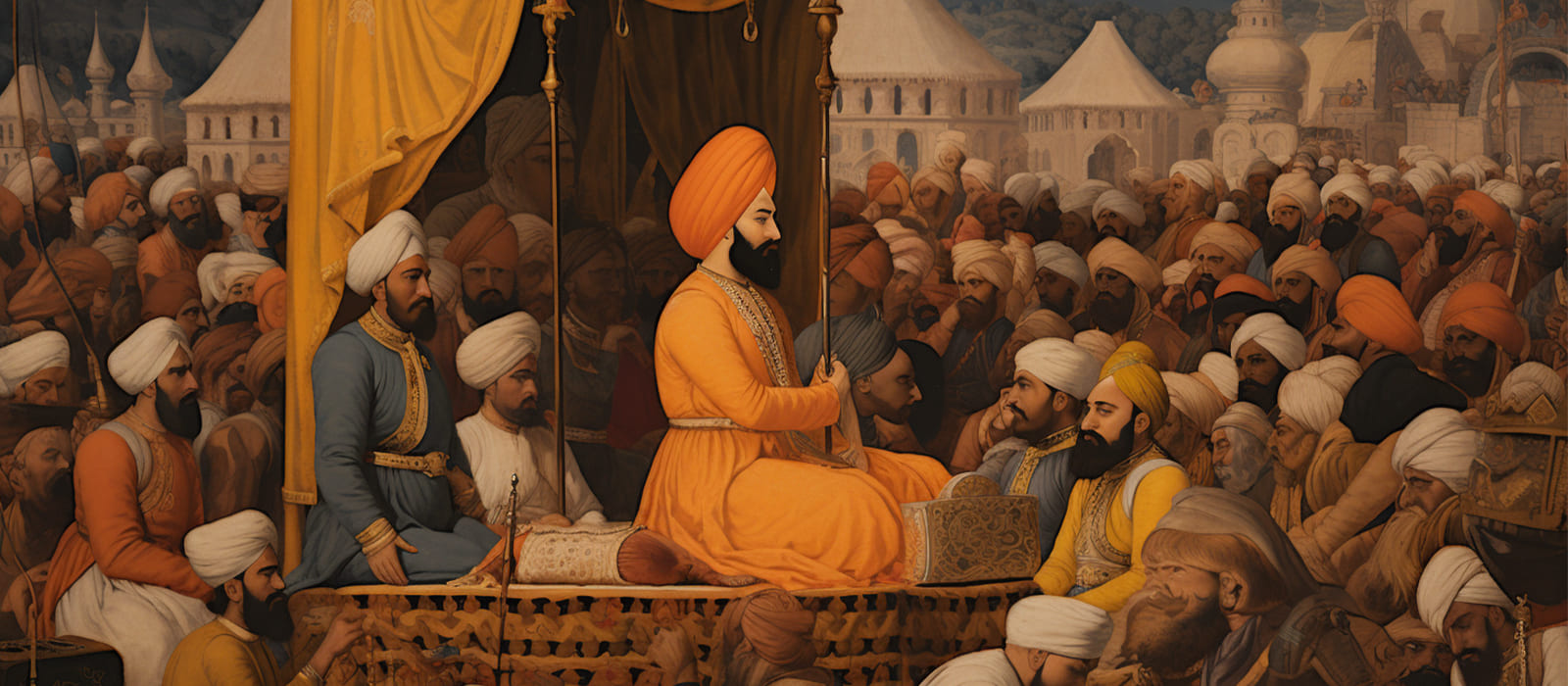Legal Autonomy in the Empire of Maharaja Ranjit Singh
Maharaja Ranjit Singh’s reign was marked by a unique blend of military prowess and administrative acumen.
One of the key elements that defined the structure of his empire was legal autonomy.
In this blog, we’ll delve into various aspects of how Ranjit Singh ensured legal autonomy within his domain.

Establishment of Judicial System:
- Ranjit Singh recognized the importance of a fair and efficient judicial system.
- He established courts that operated without bias, fostering a sense of justice and security among the diverse population of his empire.
The judicial system under Ranjit Singh was a cornerstone of legal autonomy.
Courts were set up to resolve disputes and deliver justice promptly.
This system operated impartially, ensuring that everyone, regardless of their background, had access to a fair legal process.
Legal Protection for Cultivators:
- Ranjit Singh implemented land reforms that aimed at protecting the rights of cultivators.
- The introduction of a fair land revenue system ensured that farmers were taxed based on their land productivity, contributing to agricultural and economic autonomy.
The legal autonomy extended to the economic domain with Ranjit Singh’s focus on protecting cultivators.
The fair land revenue system prevented exploitation, ensuring that farmers paid taxes in proportion to their ability, thereby fostering economic stability.
Role of Qazis and Magistrates:
- To enhance legal autonomy, Ranjit Singh appointed Qazis and magistrates who played vital roles in maintaining local order and resolving legal matters.
- Their appointment contributed to a decentralized legal structure.
The inclusion of Qazis (Islamic judges) and magistrates showcased Ranjit Singh’s commitment to accommodating diverse religious practices.
These legal authorities operated at the local level, providing swift resolutions to disputes and contributing to the overall legal autonomy of the empire.
Inclusive Legal Policies:
- Ranjit Singh adopted policies that were inclusive and respected the diverse religious and cultural fabric of his empire.
- This inclusivity in legal matters contributed to a sense of belonging and autonomy among different communities.
Unlike some rulers of his time, Ranjit Singh embraced inclusivity in legal policies.
Everyone, irrespective of their religious or cultural background, was subject to the same fair legal principles.
This approach fostered unity and a shared sense of legal autonomy.
Protection of Minority Rights:
- Legal autonomy in Ranjit Singh’s empire also meant safeguarding the rights of religious and ethnic minorities.
- This protective stance contributed to social harmony and cohesion.
Ranjit Singh’s commitment to legal autonomy extended to protecting the rights of minorities.
Whether it was religious or ethnic minorities, his policies ensured that they were treated justly under the law, fostering a sense of security and belonging.
